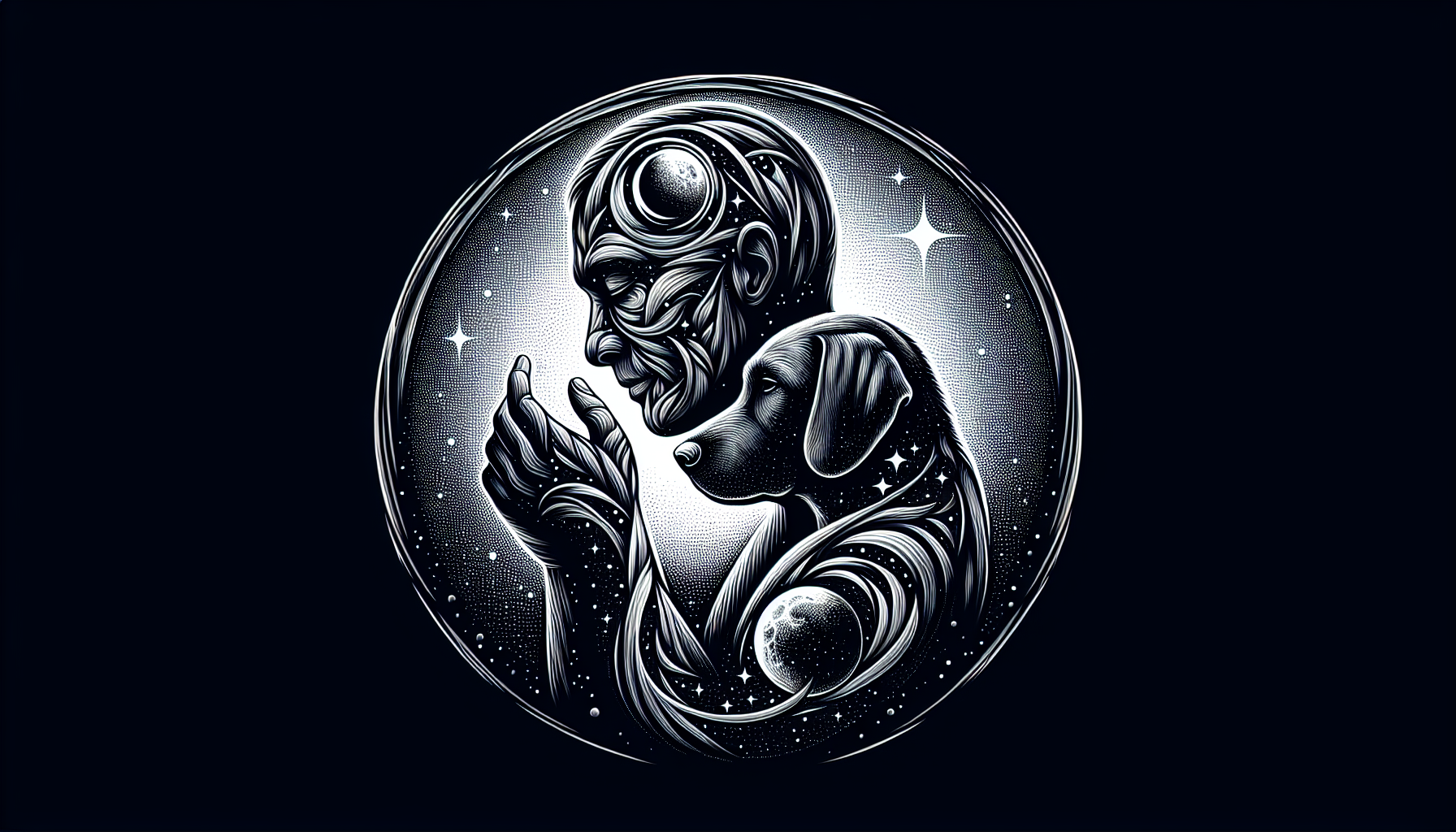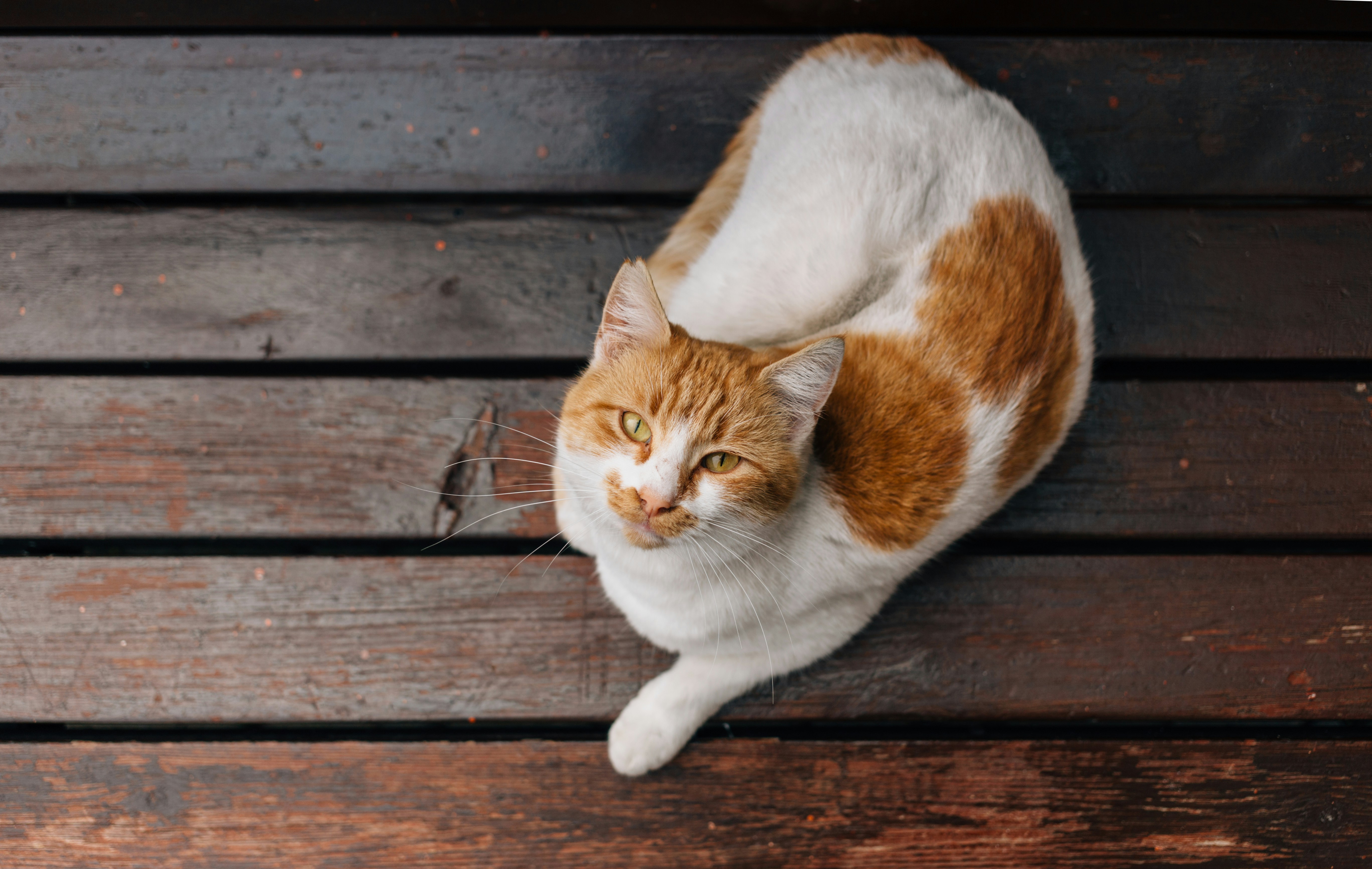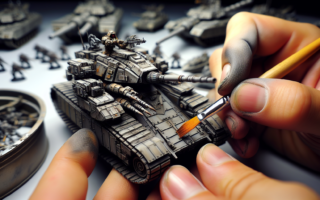Have you ever wondered why your boyfriend has such a deep and special bond with his pet? It’s fascinating how some people can form such strong connections with their furry friends. Whether it’s a playful puppy or a gentle cat, pets have a unique way of capturing our hearts. In this article, we’ll explore some possible reasons behind your boyfriend’s close bond with his pet and delve into the wonderful world of human-animal relationships. So, grab a cup of tea and get ready to discover the secrets of this special bond.
Understanding the Origin of the Bond
Evolutionary Origins of Human-Animal Bond
The bond between humans and animals has evolved over thousands of years. Our ancestors relied on animals for survival, whether it was for hunting, protection, or companionship. This deep-rooted connection has carried through generations, and today, pets continue to play an important role in our lives.
Psychological Benefits of Pet Ownership
Numerous studies have shown that owning a pet can have significant psychological benefits. Pets provide companionship, promote feelings of happiness and well-being, and reduce feelings of loneliness and stress. The presence of a pet can also increase the release of oxytocin, a hormone associated with bonding and relaxation.
Bonding through Mutual Trust and Dependency
One of the foundations of the bond between humans and animals is the mutual trust and dependency that develops over time. As pets rely on their owners for food, shelter, and care, they learn to trust and rely on their humans. In return, humans provide love, attention, and support. This bond is built on a sense of reciprocity and provides a strong emotional connection.
The Role of Pets in Emotional Support
Pets as Companions for Loneliness
Pets, especially dogs and cats, can provide much-needed companionship for individuals who may be feeling lonely. Their presence can alleviate feelings of isolation by providing constant companionship and unconditional love. Whether it’s having a furry friend to cuddle up with or a playmate to keep you company, pets can fill the void of loneliness.
Pets as Nonjudgmental Listeners
Sometimes, we just need someone to listen without judgment. Pets, with their unwavering loyalty and nonverbal communication, make excellent listeners. They offer a safe space for us to express our thoughts and emotions without fear of judgment or criticism. Whether we’re venting about a bad day or sharing our deepest secrets, pets are there to provide a listening ear and comforting presence.
Pets as Sources of Unconditional Love
One of the most beautiful aspects of the bond between humans and animals is the unconditional love pets offer. They don’t care about our flaws or imperfections; they love us unconditionally. This can be incredibly comforting, especially during challenging times when we may doubt ourselves or feel unlovable. Pets remind us that we are worthy of love and acceptance just as we are.
The Impact of Pets on Mental and Physical Health
Reducing Stress and Anxiety
Numerous studies have shown that interacting with pets can significantly reduce stress and anxiety levels. The act of petting a dog or cat releases oxytocin, a hormone associated with relaxation and stress reduction. The presence of a pet can also lower cortisol, a stress hormone. These physiological responses help promote a sense of calm and emotional well-being.
Boosting Mood and Happiness
Pets have a remarkable ability to boost our mood and bring happiness into our lives. The act of playing, cuddling, or simply being in the presence of a pet releases feel-good chemicals in our brains, such as dopamine and serotonin. These neurotransmitters contribute to feelings of happiness and overall well-being. The unconditional love and joy pets provide can truly brighten our days.
Encouraging Exercise and Physical Activity
Having a pet often requires physical activity, such as walking a dog or playing with a cat. This regular exercise not only benefits our pets but also promotes our own physical well-being. Regular exercise has been linked to improved cardiovascular health, weight management, and increased energy levels. Having a furry exercise buddy can make physical activity more enjoyable and motivate us to stay active.
Personality Factors and Pet Bonding
Individual Differences in Attachment Styles
Our attachment styles can influence the way we bond with our pets. Some individuals may have a secure attachment style, feeling comfortable with emotional intimacy, trust, and dependency. Others may have an anxious attachment style, seeking constant reassurance and validation from their pets. Understanding our own attachment style can help us cultivate a healthier and more fulfilling bond with our pets.
Pets as Emotional Support for Introverts
Introverts often find solace in the company of their pets. Pets, with their calming presence, provide a safe haven for introverts to recharge and find emotional support. They offer a non-demanding source of companionship, allowing introverts to have meaningful connections without the pressure of social interaction. Pets understand the need for alone time and respect personal boundaries.
Pets as a Source of Security and Comfort
Pets offer a sense of security and comfort, especially during times of stress or anxiety. The physical presence of a pet can provide reassurance, making us feel safe and protected. Additionally, their predictable routines and affectionate behaviors create a sense of stability and comfort in our lives. Knowing that our pets are there for us can bring a great sense of peace and security.

The Importance of Routine and Care
Establishing a Daily Routine
Pets thrive on routine, and establishing a daily routine helps create a sense of structure and stability in their lives. Regular feeding times, exercise routines, and playtime are not only essential for their well-being but also contribute to their overall happiness. By establishing a consistent routine for our pets, we create a bond based on trust and predictability.
Meeting Basic Needs
Taking care of our pets’ basic needs, such as providing food, water, shelter, and veterinary care, is essential for their health and happiness. Meeting these needs also strengthens the bond between pet and owner. By fulfilling their needs, we demonstrate our commitment and love for them, building a foundation of trust and dependency.
Cultivating Responsibility and Nurturing Skills
Caring for a pet teaches us valuable life skills, such as responsibility and nurturing. Pets rely on their owners for their well-being, and taking on that responsibility helps us develop a sense of accountability and empathy. Nurturing and caring for a pet also allows us to experience the joy of giving and receiving love, fostering our capacity for compassion and emotional connection.
Shared Experiences and Emotional Connections
Creating Shared Memories and Traditions
Pets become integral members of our families, and through shared experiences, we create cherished memories and traditions. From going on adventures together to celebrating special occasions, pets are often by our side, making these moments even more meaningful. These shared experiences strengthen the emotional bond and create lifelong connections.
Building Empathy and Compassion
Interacting with pets on a daily basis helps us develop and enhance our empathy and compassion. We become attuned to their needs, emotions, and nonverbal cues, learning to respond with love and care. This transfer of empathy and compassion extends beyond our pets and can positively impact our relationships with other humans as well.
Pets as Bridges in Relationships
Pets can serve as bridges in relationships, bringing people closer together. Whether it’s a couple taking care of a pet together or friends bonding over their shared love for a specific animal, pets can facilitate connections and strengthen bonds. They provide a common interest and a source of joy that can help foster deeper and more meaningful relationships.
Unconditional Love and Acceptance
Pets as Non-judgmental Partners
Pets offer a safe space where we can be ourselves without fear of judgment. They accept us exactly as we are, flaws and all. This non-judgmental love and acceptance can be incredibly healing and liberating, allowing us to embrace our authentic selves and build a strong sense of self-worth.
Emotional Support during Difficult Times
During difficult times, such as loss, grief, or illness, pets can be a source of tremendous emotional support. They provide comfort, companionship, and a listening ear when we need it the most. Their unwavering presence and love can help us navigate through challenging emotions and offer a sense of solace and understanding.
Unconditional Acceptance and Understanding
Pets offer unconditional acceptance and understanding, even during our darkest moments. They don’t judge us for our mistakes or weaknesses; instead, they stand by our side, providing unwavering support. This unconditional love and understanding can be a powerful force in our lives, bringing comfort and reassurance in times of need.
The Bonding Power of Communication
Understanding Nonverbal Cues
Pets communicate primarily through nonverbal cues, such as body language, facial expressions, and vocalizations. Learning to understand and interpret these cues can help us develop a deeper connection with our pets. By paying attention to their signals, we can better respond to their needs and strengthen the bond of trust and understanding.
Developing a Unique Communication Style
Over time, pet owners often develop a unique communication style with their pets. This can include specific verbal cues, gestures, or even inside jokes that create a shared language between pet and owner. This personalized communication style enhances the bond and deepens the emotional connection.
Enhancing Emotional Intelligence
Interacting with pets can enhance our emotional intelligence, helping us become more aware of our own emotions and those of others. By tuning into our pets’ emotional state, we can practice empathy, compassion, and emotional regulation. This emotional intelligence extends beyond our relationship with our pets and can positively impact our interactions with other humans as well.

The Role of Pets in Self-Identity and Purpose
Companionship as an Essential Part of Identity
For many individuals, pets are an essential part of their identity. The role of being a pet owner brings a sense of purpose and fulfillment to their lives. Whether it’s caring for a dog, cat, or any other animal, the companionship and love pets provide become intertwined with their sense of self.
Pets as a Source of Purpose and Responsibility
Caring for a pet gives us a sense of purpose and responsibility. Pets rely on us for their well-being, and fulfilling this role brings a sense of duty and commitment. Knowing that our pets are dependent on us for their happiness and health gives us a stronger sense of purpose and a reason to strive for their well-being.
Finding Meaning in Caring for Another Being
Caring for a pet can bring immense joy and meaning to our lives. The act of nurturing and providing for another living being brings a sense of fulfillment and satisfaction. Being responsible for the well-being of another creates a deep connection and a feeling of significance in our lives.
Overcoming Challenges in the Pet-Owner Relationship
Balancing Time and Commitments
Being a pet owner requires time and commitment. It’s important to balance work, social life, and other responsibilities while still providing the love and care our pets need. Finding a routine and setting aside quality time for our pets helps maintain a healthy and balanced pet-owner relationship.
Addressing Pet Behavior Issues
Challenges in the pet-owner relationship may arise due to specific behavior issues in pets. Whether it’s aggression, separation anxiety, or destructive behavior, addressing these issues is crucial for a harmonious bond. Seeking professional help, such as consulting a veterinarian or animal behaviorist, can provide guidance and support in addressing these challenges.
Navigating Grief and Loss
Losing a beloved pet can be a profound and heartbreaking experience. Grief and loss are natural and valid emotions that accompany this process. Navigating through these emotions requires patience, self-care, and support from loved ones. Understanding that the bond we shared with our pet was unique and special can help in the healing process while honoring their memory.
In conclusion, the bond between humans and animals is a truly remarkable and beautiful phenomenon. Pets offer us companionship, emotional support, and unconditional love. They become an integral part of our lives, bringing joy, purpose, and a sense of connection. Whether it’s the evolutionary origins, the psychological benefits, or the emotional connections they foster, pets have a profound impact on our mental, emotional, and physical well-being. Embrace the bond you share with your pet and cherish the unconditional love they provide.





